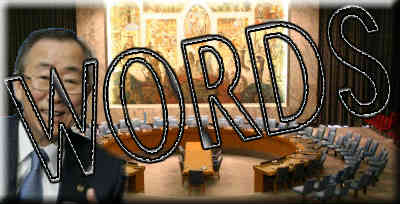
The barbaric murder by ISIS of captured Jordanian fighter pilot, First Lt. Moaz al-Kasabeh, whom the sadistic jihadists videotaped as he burned alive in sheer agony in an iron cage, has stiffened Jordan’s resolve to fight back. Jordan promptly executed two of its convicted jihadist prisoners whom had previously received death sentences for their crimes.
They were Sajida al-Rishawi, the would-be suicide bomber affiliated with al-Qaeda in Iraq, the predecessor of ISIS, who was involved in the 2005 hotel bombings in Amman Jordan that killed 60 people, and Ziad al-Karbouli, a senior member of the same group who was found guilty of planning attacks on Jordanians in Iraq.
The United Nations, the epicenter of moral equivalency, has a problem with the executions that Jordan carried out. When asked whether Jordan’s form of retribution for the brutal murder of its fighter pilot was justified, the spokesperson for United Nations Secretary General Ban Ki-moon reiterated the Secretary General’s long-standing opposition to all capital punishment.
Here is the exchange at the daily noon briefing at UN headquarters on February 4th:
“Correspondent: As you know, Jordan executed two prisoners including Sajida al-Rishawi, as revenge to the deaths of this pilot. The UN is calling to combat ISIS [Islamic State in Iraq and the Levant/Sham] by all means. So, could you support this Jordanian reaction?
Spokesman: I think, if you look back to what we said yesterday, that the Secretary‑General urges all Governments to strengthen their efforts to combat the scourge of terrorism and extremism within the bounds of their human rights obligations. And clearly, the Secretary‑General's position and the UN's position on the death penalty is unchanged.”
“The death penalty has no place in the 21st century,” Ban Ki-moon has remarked in the past. The UN Office of the High Commissioner for Human Rights has advocated for the universal abolition of the death penalty, stating as one of its rationales “the fundamental nature of the right to life.”
Such lofty sentiments are fundamentally wrong, at least when dealing with the 7th century barbarism of ISIS and other jihadists. ISIS is using 21st century technology in the service of atavistic acts of pure evil with absolutely no regard for the value of human life.
Jordan had tried to negotiate a swap of Rishawi for its fighter pilot but wanted proof first that the pilot was still alive. ISIS’s answer was the ghastly video of Lt. Kasabeh’s savage murder, which apparently had occurred weeks before in early January. ISIS also beheaded two Japanese hostages in the interim.
UN Security Council and Secretary General statements are nothing more than hollow words
When dealing with pure evil, bland UN Security Council and Secretary General statements condemning the murders, repeating their endless unheeded calls for international solidarity against “terrorism,” are nothing more than hollow words. The UN Security Council, for example, issued a statement condemning the "brutality of ISIL, which is responsible for thousands of crimes and abuses against people from all faiths, ethnicities and nationalities, and without regard to any basic value of humanity." Fine, but such words alone are of no consolation to the families of the brutally slain victims of ISIS’s heinous crimes against humanity.
Jordan had every legal and moral right to exact the death penalty against members of ISIS’s predecessor organization. Article 6 of the International Covenant on Civil and Political Rights states that in those countries which still retain the death penalty the “sentence of death may be imposed only for the most serious crimes in accordance with the law in force at the time of the commission of the crime.” Article 6 goes on to say that the death penalty “can only be carried out pursuant to a final judgement rendered by a competent court.”
In Jordan’s case, the government carried out the death sentences already meted out by its court system. And in carrying out the sentences, the authorities did not subject the prisoners to gruesome suffering videotaped for all the world to see, as ISIS had done with First Lt. Moaz al-Kasabeh.
Those who have objected to Jordan’s executions argue, in addition to their general aversion to capital punishment, that the executions will only inflame further violence and serve as a recruitment tool for ISIS. Perhaps, but that is beside the point. ISIS does not need any excuses for further violence. It has expanded in the first place because the world stood silent for too long. The videos of the beheadings and burning to death of its hostages are apparently enough to lure more demented recruits to their ranks. In any event, the executions carried out by Jordan were not random arbitrary revenge killings of innocents or the acts of vigilante mobs. Jordan’s execution of the two convicted jihadists helped channel the understandable anger of Jordanian citizens and calls for revenge by carrying out the death sentences against members of ISIS’s predecessor organization already imposed through the judicial process. The executions should help to unite the country against ISIS, rather than splinter it if there had been an inadequate response as perceived by the Jordanian people.
We can only hope that ISIS’s brutality will backfire, creating a wedge within the Sunni community and increasing support in the region for the U.S. led coalition against ISIS. In the meantime, however, Jordan demonstrated its resolve not to be bullied by jihadists and, in the words of Jordan's King Abdullah II, “to show the real values of Jordanians in the face of these hardships."
The United Nations would do well to refrain from criticizing Jordan and, instead, make sure that it is not unwittingly helping ISIS, which, for example, has reportedly been distributing UN-provided food relief supplies in Syria with labels bearing ISIS’s insignia!
